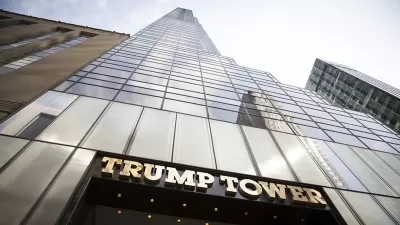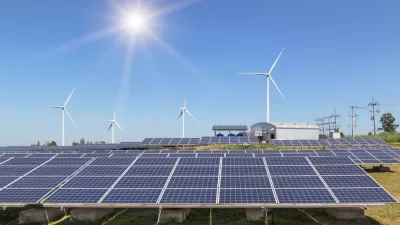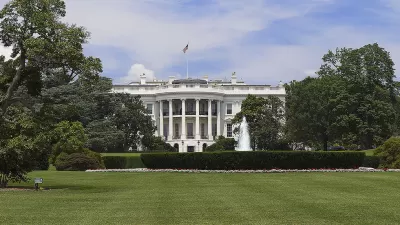Urbanists consider what the administration of President-elect, Donald Trump, will mean for cities.

With any more traditional Republican candidate who takes over after a Democratic administration, even a casual observer would expect there could be large-scale changes to immigration, birth control, environmental issues, gun control, and, probably, trade policy. After an election where a non-traditional Republican takes over after an election that also returned both houses of Congress to the Republican party, one would imagine that the changes would be that much more sweeping and swift. Republican politicians have an opportunity that hasn't existed in nearly a decade. In the Republican-dominated period between 2003 – 2007, a period that saw the invasion of Iraq and the partial-birth abortion act; it was also a time when the newly signed Patriot Act and newly created Department of Homeland Security became expanded and entrenched.
To narrow the scope of the question, Anthony Flint writes about the way the physical infrastructure of cities could be affected focusing on the "nuts and bolts." Trump's advisors have already proposed creating more than a trillion dollars of private infrastructure. The infrastructure would not all be new, it would also involve privatizing many miles of highways and bridges.
As far as allocating federal dollars for cities, Flint suggests that it’s unlikely, "The thinking among policymakers and elected officials has been that cities are on their own. That is certainly true in terms of federal funding; cities rely on state funding and “own source” revenue." That's not new policy though, Flint concedes, "The President’s FY 2017 Budget provides the U.S. Department of Housing and Urban Development with $48.9 billion in gross discretionary funding and $11.3 billion in new mandatory spending over 10 years, primarily for housing."
Issues of environmental and climate policy will be likely to affect cities. Trump has voiced his skepticism of climate change. Federal policy regarding climate change has myriad impacts, "Not only the role of alternative energy innovation in urban economies, but plans that cities around the country are making to prepare for the inevitable impacts of global warming: the burgeoning field of resilience and adaptation. Girding for sea-level rise is yet another task that is going to cost a lot of money, and require innovation in climate infrastructure finance."
Any discussion of cities, unfortunately, will involve a good deal of speculation, because many of the problems facing cities were ignored during the presidential campaign. "A national urban policy never got discussed in the campaign, despite the party conventions being held in two struggling post-industrial cities," Flint says.
FULL STORY: How to Start Thinking About What a Trump Presidency Means for Cities

Alabama: Trump Terminates Settlements for Black Communities Harmed By Raw Sewage
Trump deemed the landmark civil rights agreement “illegal DEI and environmental justice policy.”

Planetizen Federal Action Tracker
A weekly monitor of how Trump’s orders and actions are impacting planners and planning in America.

The 120 Year Old Tiny Home Villages That Sheltered San Francisco’s Earthquake Refugees
More than a century ago, San Francisco mobilized to house thousands of residents displaced by the 1906 earthquake. Could their strategy offer a model for the present?

Ken Jennings Launches Transit Web Series
The Jeopardy champ wants you to ride public transit.

BLM To Rescind Public Lands Rule
The change will downgrade conservation, once again putting federal land at risk for mining and other extractive uses.

Indy Neighborhood Group Builds Temporary Multi-Use Path
Community members, aided in part by funding from the city, repurposed a vehicle lane to create a protected bike and pedestrian path for the summer season.
Urban Design for Planners 1: Software Tools
This six-course series explores essential urban design concepts using open source software and equips planners with the tools they need to participate fully in the urban design process.
Planning for Universal Design
Learn the tools for implementing Universal Design in planning regulations.
Clanton & Associates, Inc.
Jessamine County Fiscal Court
Institute for Housing and Urban Development Studies (IHS)
City of Grandview
Harvard GSD Executive Education
Toledo-Lucas County Plan Commissions
Salt Lake City
NYU Wagner Graduate School of Public Service




























